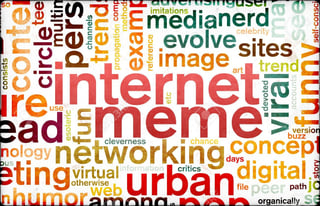Internet culture refers to culture developed and maintained among frequent and active users of the Internet who primarily communicate with one another as members of online communities; that is, a culture whose influence is "mediated by computer screens" and information communication technology, specifically the Internet. From Wikipedia


